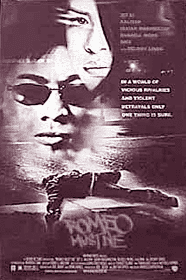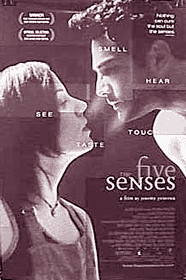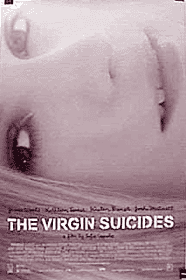
SHOW TIMESAll films shown in Russian, except those marked * (subtitled) and as otherwise indicated.
AMERICAN HOUSE OF CINEMA Berezhkovskaya naberezhnaya Radisson-Slavjanskaya Hotel M: Kievskaya, 941-8747 (All films in English; Russian translation by headphones Tues.-Sun.) Romeo Must Die Sept. 14: 21.00; Sept. 15: 18.00, 22.10; Sept. 16: 14.00, 18.10, 22.20; Sept. 17: 14.00, 18.10
DOME CINEMA 18/1 Olympysly prospekt M: Prospekt Mira, 931-9873 (All shown films in English; Russian translation by headphones) Titan A.E. Sept. 16-17: 14.00; Sept. 23-24, 30, Oct. 1: 12.30, 14.30 Nutty Professor II (The Klumps) Sept. 23: 16.30, 19.00, 21.30, 23.45; Sept. 24: 16.30, 19.00, 21.30
PUSHKINSKY CINEMA 2 Pushkinskaya ploshchad M: Pushkinskaya/Chechovskaya 229-2111; 299-7300 Romeo Must Die Sept. 14: 11.00, 13.30, 16.00, 18.30, 21.00, 23.30; Sept. 15: 11.00, 13.30, 16.00; Sept. 16-20: 13.00, 17.00, 21.00; Sept. 21: 13.00, 17.00
KHUDOZHESTVENNY Arbatskaya ploshchad, 2 M: Arbatskaya, 291-9624/5598 Shanghai Noon starts Sept. 15
35MM Ulitsa Pokrovka, 47/24 M: Krasniye Vorota, 917-5492 The Five Senses* Sept. 14: 19.00, 22.00; Sept. 15-16: 9.00, 11.00, 15.00, 17.00, 19.00, 21.00
UDARNIK Ulitsa Serafimovicha, 2 M: Polyanka, 959-0856
CINEMA CENTER ON KRASNAYA PRESNYA Druzhinnikovskaya ul., 15 M: Krasnopresnenskaya, 255-9222 Gone in 60 Seconds Sept. 14: 14.10; Sept. 15: 21.30; Sept. 17: 10.00 American Beauty* Sept. 15: 17.20; Sept. 17: 18.40 Dr. Strangelove (or, How I Learned to Stop Worrying and Love the Bomb) Sept. 16: 19.00 Magnolia* Sept. 17: 20.50 |
Romeo Must Drink and Drive
First off, an offensive ethnic joke:
A Chinaman walks into a bar. He goes up to the black bartender and says, “Hey nigga, how ‘bout a jigga?” The bartender, not quite believing his ears, stares back at the Chinaman incredulously for a few moments.
Finally the bartender says, “How can you say something like that? You of all people should understand how insulting that is. Think about it—how would you like it if you were the bartender and I came up to you talking like that?”
The Chinaman responds, “Good queshon. Why not we trade places and then we find out.”
The bartender ponders this suggestion for a minute, then agrees. The Chinaman takes his place behind the bar, while the bartender hops across to the other side, thinking to himself about his order. After a few moments he orders: “Hey chink, how ‘bout a drink?”
The Chinaman looks at him quite seriously, then says, “I solly… we don’t serve niggas here.”
 |
Granted, Chinaman may not be the accepted nomenclature (Asian American, please), but it seems somehow appropriate under the circumstances. This isn’t some guy who built the railroad, after all. Anyway, as you may have guessed by now, today we shall consider ROMEO MUST DIE, a somewhat unusual action film that’s notable for a variety of reasons—not least of which is that you can more or less sit through the entire thing without once feeling compelled to yank your hair out by the roots.
I suppose it was only a matter of time before some genius came up with the idea of combining the black ‘hood and Hong Kong gangster genres into a single film. It should also be noted that the first attempt could easily have been far, far worse. Nevertheless, it’s hard to ignore the fact that the exercise turns out a little lopsided. Thus, the Asian side of the coin remains largely undeveloped, with the impressive Jet Li doing mostly the Jackie Chan schtick (minus the slapstick), with brief introductory scene back in the Old Country (i.e., Hong Kong), repetitive and maudlin flashbacks, and a tacked-on bit of John Woo doppelgangerism to give the climactic fight scene some additional dramatic punch (no pun intended). On the other side of the tracks, meanwhile, the black folk seem to be trying to work in every ‘hood and/or Mafia cliche in the book. You’ve got the movin’-on-up angle straight out of The Jeffersons sharing equal time with the tryin’-to-go-legit angle as depicted in The Godfather series (exemplified here, rather improbably, by a scenario in which the Raiders’ shady return to Oakland is nearly derailed by Delroy Lindo’s inability to master the rudiments of golf).
This would all be silly enough on its own, but it’s the interracial Shakespearean angle implied by the film’s title that really stretches the mishmash of source material beyond any reasonable limits. This is hardly a new idea (in fact, I recall a Pasadena-based community theater production of an Asian-Black Romeo and Juliet dating back to just after the LA riots), which perhaps explains why it was implemented in such a half-baked, hesitant fashion. On the other hand, the allusion provides a reasonably snappy title, and the filmmakers should be saluted for having the sense to put a happy face on old Will’s bummer of an ending.
Of course, much of the hype surrounding Romeo Must Die derives from the fact that it’s from “the makers of The Matrix.” But this is just a red herring, regardless of what your feelings for that film might have been. Given that at least a dozen other films have already tried to capitalize on the unlikely success of The Matrix by blatantly copying its most obvious visual tics, there’s nothing particularly interesting about the fact that one of that film’s producers is now trying to do the same. Then again, that much-imitated stop-action digital-editing technique does look a little less silly when its animating a fight between Jet Li and Russell Wong rather than Sir Laurence Fishburne and Keanu Reeves.
 One
final note: while it was a nice touch naming the Edoardo Ballerini character
“Vincent Roth,” Christian Bale would have been a far better choice to
play the role.
One
final note: while it was a nice touch naming the Edoardo Ballerini character
“Vincent Roth,” Christian Bale would have been a far better choice to
play the role.
Ordinarily, I would do everything in my power to ignore a film like THE FIVE SENSES. However, it boasts what it is quite possibly the most blandly unpleasant trailer I have ever seen—a feat made all the more impressive by the fact that I witnessed it immediately after that for The Virgin Suicides (see below), a truly nauseating trailer in its own right. An overwrought Canadian film whose director also has a suspicious sounding name (Jeremy Podeswa), it is to Atom Egoyan’s acclaimed The Sweet Hereafter what Romeo Must Die (see above) is to The Matrix. And that’s all I’m going to say about that little turd.
 |
Which leaves us with THE VIRGIN SUICIDES, the directorial debut of Sofia Coppola and certainly a most curious film—if not necessarily for what’s up on the screen, then for the breathless critical response it has engendered. I’m not so much talking about the almost universally glowing raves it has garnered, or even those who have claimed that it marks the arrival of the most interesting new filmic voice in the last year. What’s remarkable, rather, is the way almost every critic out there has danced ostentatiously around the Coppola factor. Many chose to save the seemingly obligatory mention of the director’s legendary daddy (Francis, you might have heard of him) for a low-profile penultimate paragraph, while a few even neglected the familial connection entirely.
Such uncharacteristic restraint from inveterate infotainment hacks is perhaps explainable as an after-the-fact mea culpa. Recall that many critics heaped an arguably unfair share of the blame for the multi-dimensional failure that was The Godfather, Part III on a 19-year-old Sofia. Yes she was bad, but she probably wasn’t quite that bad. So now the critics are apologizing the only way they know how: by not implying that she owes any part of her success to her father. Either that, or their conspicuous silence on the potential-nepotism factor is actually indicative that they were bullied into praising the film by a still-influential Francis (who, I imagine, still harbors bitterness about the drubbing that his film and teenage daughter took back in 1990). It also doesn’t hurt that she recently married Spike Jonze, director of one of last year’s most highly acclaimed indie flicks, Being John Malkovich.
Unfortunately for those who care little about such behind-the-scenes maneuvering, however, The Virgin Suicides is a full-scale disappointment when considered solely on its own merits. Neither brilliant nor atrocious, it’s mostly just uninteresting. From the underused James Woods in a humiliatingly one-dimensional role that’s straight out of an ABC After-School Special to the hideously puffy-faced (and no less one-dimensional) Kathleen Turner, from the would-be enigmatic titular characters to the annoying teenage boys who attempt to fathom their many-faceted splendor by way of the most obnoxious voiceovers since High Fidelity, there’s little in this film that hasn’t already been covered (no less unpleasantly, but at least not at such length) on The Wonder Years.
This points to the film’s most worrisome concern: the never-quite-dead ‘70s nostalgia fad has now developed to the point where young people who were merely born (but not really raised) in the 1970s are going to start churning out such films as well. In other words, Sofia’s decidedly unimaginative background music selections (Heart, Styx, etc.) are only the beginning. We can only hope that those up-and-coming young directors who inevitably follow in her footsteps at least have the sense not to play the classic rock radio staples quite so loudly.
But of course, hope is futile.
Cards |
Links |
The Vault |
Gallery |
Who? |

